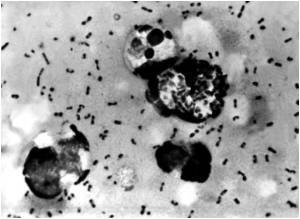Researchers from the University of Calgary and the National Research Council of Canada say they are gaining a deeper understanding of Clostridium difficile and are closer to developing

"We have found that relatively simple antibodies can interfere with the disease-causing toxins from C. difficile," says paper co-author Dr. Kenneth Ng, an associate professor of biological sciences at the University of Calgary and principal investigator of the Alberta Ingenuity Centre for Carbohydrate Science. "This discovery moves us a step closer to understanding how to neutralize the toxins and to create novel treatments for the disease."
Approximately two percent of all patients admitted to hospital may be infected by C. difficile, which thrives when healthy bacteria in the gut are weakened by antibiotics, thus allowing spores from Clostridium to germinate and colonize the large intestine.
C. difficile produces two toxins-toxin A (TcdA) and toxin B (TcdB) -- which cause damage to intestinal cells by binding to carbohydrates on the cell surface and disrupting cell functions such as adhesion. The new research shows that what's known as single-domain antibodies bind to the C. difficile toxins with high affinity and interfere with the toxins' ability to damage cells.
"Llamas have normal antibodies like our own, but they have also developed a second type of antibody with a simpler structure. It is this simpler structure that allows us to make modifications and perform many detailed studies that are not easily done with other types of antibodies," says Ng.
The research is part of a paper published in the print issue of the Journal of Biological Chemistry.
Advertisement









